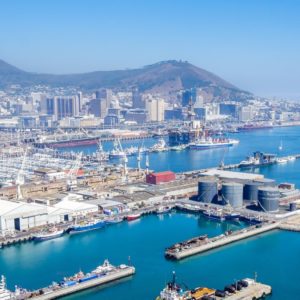The Stream, December 27: Bodies of Water in the Holy Land Shrink to Record Low Levels
The Global Rundown
Thousands in Puerto Rico are still without electricity in the wake of Hurricane Maria, complicating water access. A U.S.-Saudi deal to build the world’s largest plastic plant in Texas raises concerns about water. Tropical Storm Tembin leaves Vietnam unharmed after battering the Philippines. A recent study explores how the world’s oceans buffer climate change. Water bodies in the Holy Land, such as the Sea of Galilee and the Jordan River, shrink amid a 5-year drought.
“Things are not good.” –Miriam Narvaez, a resident of rural Puerto Rico, in reference to ongoing power shortages across the island. Hurricane Maria made landfall more than three months ago, but local engineers estimate that half of the island’s 3.3 million residents still do not have electricity. Consequently, many Puerto Ricans are also without water, and must rely on bottled water from aid groups. The New York Times
Latest WaterNews from Circle of Blue
The Year in Water, 2017 – A new era of severe environmental and economic disruption around the world upends freshwater supplies.
UN Expert Connects U.S. Water and Sanitation Struggles to Poverty – Two-week visit includes examination of sewage failures in Alabama.
By The Numbers
230 Latest death toll in the Philippines following Tropical Storm Tembin. The storm, which caused extensive flooding and landslides in the Philippines, entered Vietnamese waters but weakened to a tropical depression. Vietnamese state officials report there were no casualties from the storm. Reuters
$10 billion The agreed upon amount between Exxonmobil and Saudi Arabia’s Basic Industries Corporation to build the world’s largest plastic facility. The facility, which is slated to be constructed on the Texas coast, is raising numerous water-related concerns. The Guardian
Science, Studies, And Reports
A recent report by the U.S. Global Change Research Program listed four key ways that the world’s oceans are responding to climate change. In recent decades, the oceans have absorbed nearly all of the heat from greenhouse gases and a great deal of human carbon pollution. This has led to a less oxygen in oceans and could lead to major changes in the ocean currents. The Guardian
On The Radar
Water bodies throughout the Holy Land are shrinking as the region enters its fifth consecutive years of drought. The Sea of Galilee is at its lowest levels within the past century, the Dead Sea is rapidly dwindling, and the Jordan River’s flow is down to less than a quarter of its historical levels. ABC News
Kayla Ritter is a recent graduate of Michigan State University, where she studied International Relations and Teaching English to Speakers of Other Languages. She is currently based in Manton, Michigan. Kayla enjoys running, writing, and traveling. Contact Kayla Ritter





